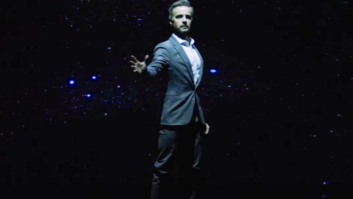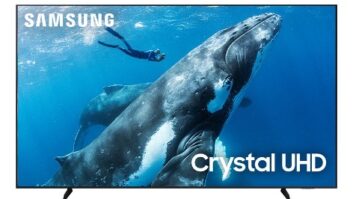San Jose, Calif. – A California appeals court partially reversed
a lower court ruling that upheld the legality of Kaleidescape’s residential movie
servers, which store copied DVDs on internal hard drives.
In its decision, California’s sixth district appellate court
reversed a superior court decision to find that Kaleidescape is contractually bound
by the terms of a technical document called the CSS (Content Scramble System) General
Specifications, which were developed by the DVD Copy Control Association to protect
DVD copyrights. The appellate court ordered the lower court to determine if Kaleidescape’s
products conform to the copy-protection specifications and, if not, determine
the appropriate penalties.
In the appellate court’s opinion, the lower court erroneously ruled
that the “General Specifications was not part of the agreement between the
parties because it had not been incorporated by reference into the written
agreement Kaleidescape executed (License Agreement).” The appellate court contended
that “… Kaleidescape was bound by the terms contained in General Specifications”
and that … the trial court must decide what those terms require and whether
Kaleidescape has breached them.”
“On remand, should the trial court conclude that Kaleidescape has
breached the License Agreement, the court shall determine the nature and extent
of the harm DVDCCA would suffer as a result of a continuing breach and shall
determine the appropriate remedy.”
The court, nonetheless, did not rule on whether Kaleidecape’s
DVD-copying servers adhere to the
specifications in the CSS document. “Our holding should not be read as
interpreting the precise requirements of General Specifications or whether they
actually apply to the Kaleidescape system. That is part of the breach analysis
upon which we express no opinion.”
The California appellate judge, nonetheless, also hinted at a
violation of the CSS specifications. In disagreeing with the lower court’s
finding that a key section, Section 2.1.2, of the specifications is vague, the
appellate court said, “… section 2.1.2, as clarified by the undisputed
extrinsic evidence, is not so vague that the court cannot tell what it
requires–it requires that playback of DVD content by a Drive plus Decryption
device be performed utilizing the physical DVD.”
In a separate but related case, a federal judge concluded that a
Kaleidescape-type device likely would violate the terms of the DVDCA’s license.
In issuing a preliminary
injunction Tuesday against the sale of Real’s RealDVD PC software, the
federal judge concluded
that the CSS license agreement “does not give license to copy DVD content to a
hard drive permanently” and that the only authorized copying “is temporary
copying, i.e. buffering or caching, because it is a necessary part of the
playback process in all DVD players.” The federal judge also found the software
to violate the Digital Millenium Copyright Act (DMCA).
The appellate court decision was hailed by the movie industry. In
a statement yesterday, the Motion Picture Association of America (MPAA) said, “Both the Kaleidescape decision today
and yesterday’s RealDVD decision affirm an important principle of law: that all
parties that sign the CSS License are bound by all of its terms and that they
may not selectively pick and choose what terms of the license to honor.” The
MPAA was not a plaintiff in the Kaleidescape dispute but is a plaintiff in the
RealNetwork’s dispute.













